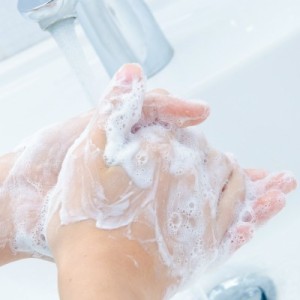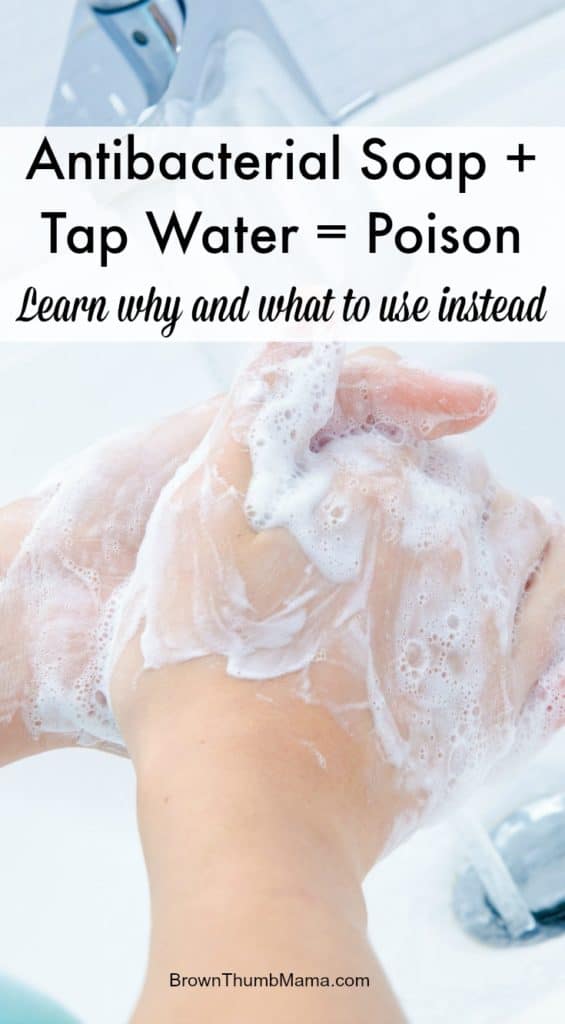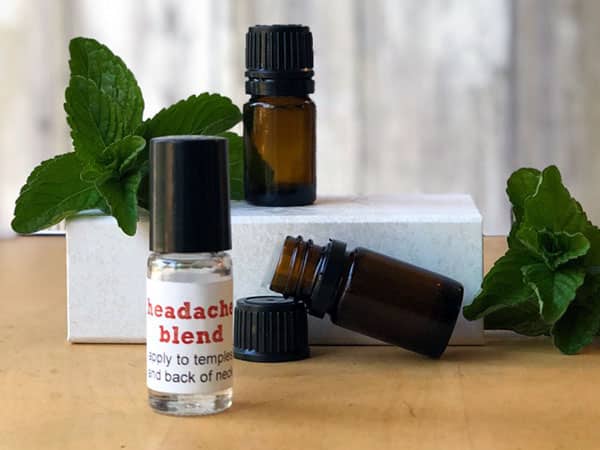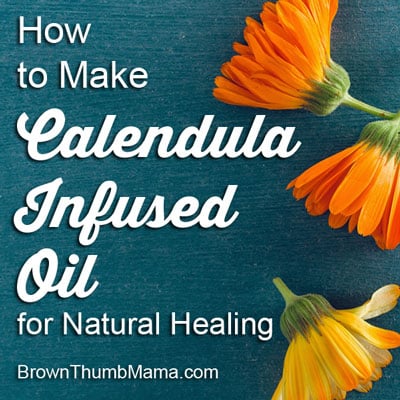This post may include affiliate links.
If you make a purchase, I'll earn a small fee at no extra cost to you.
A lot of people think that antibacterial soap is a good idea. They see it as an added layer of protection against all the bad germs out there–a necessity with kids and during cold and flu  season.
season.
I completely disagree. We don’t use antibacterial soap in our house AT ALL.
“So what gives, Mama?” you say. “Are you pro-germ? Is this some green-and-crunchy thing? Are you TRYING to get sick?”
No, no, and no.
My objection to antibacterial soap lies in one toxic ingredient: triclosan.
Triclosan is an antibacterial and antifungal agent, which sounds like a good thing at first. Then I looked it up on Environmental Working Group’s site and found these alarming facts:
-
Triclosan causes endocrine disruption at very low doses. It produces adverse developmental, reproductive, neurological, and immune effects in both humans and wildlife. source
-
Triclosan is persistent and bioaccumulative in wildlife. This means it doesn’t break down in the environment and it builds up in food chains–posing risks to human health and ecosystems. source
-
Triclosan causes severe hormone disruption in wildlife. It changes testosterone concentration in male rats and hastens puberty in female rats. source
Is your skin crawling yet? Sorry, there’s more.
At Virginia Tech University, a team of researchers reported that triclosan interacts with the chlorine in tap water and degrades to produce chloroform, which is both toxic and carcinogenic following inhalation or skin absorption. source
What can you use instead?
Good news–plain old soap and warm water works just fine to get rid of germs. source
For an extra boost, make our own moisturizing foaming hand soap, and add immune-boosting essential oils. Learn more about my trusted brand of essential oils here.
Just a reminder: I’m not a doctor, and I don’t play one on TV. Please do your own research and decide for yourself!
Quick solution:
No time to make your own soap? Here’s a brand I trust–add a few drops of essential oil and you’re ready to go.





